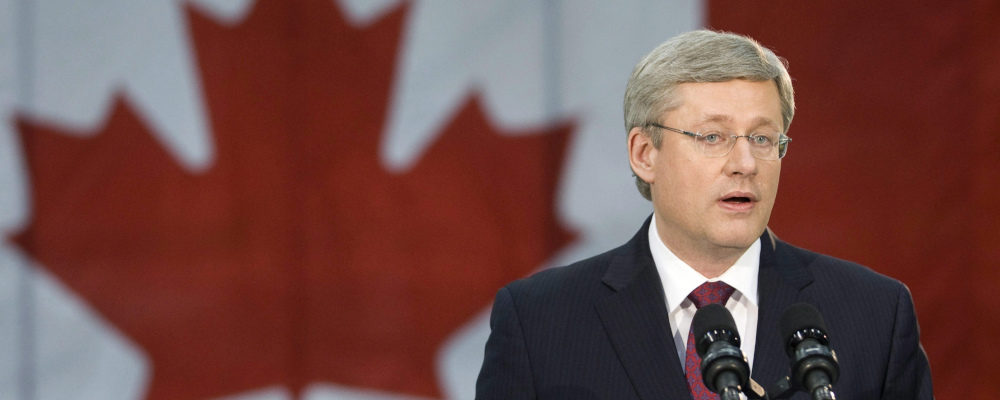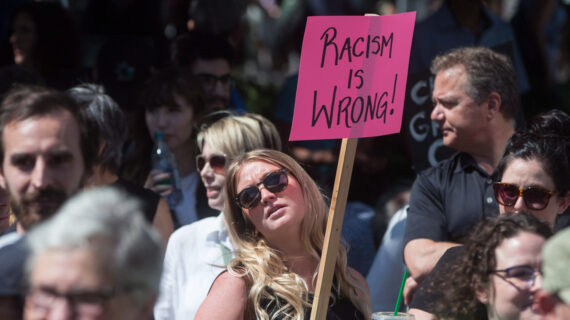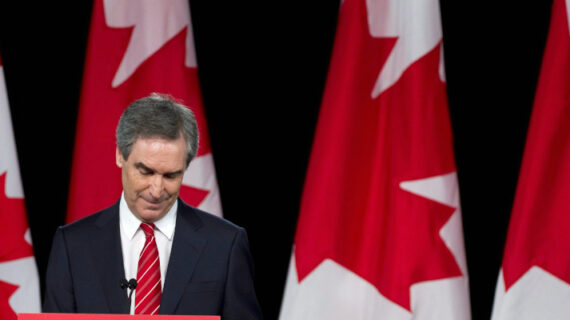Yesterday marked the ten-year anniversary of the craziest and most memorable 24 hours of my professional career.
A bit of context: At the time I was on leave from my job as a policy advisor in the Prime Minister’s Office and working on the Conservative Party of Canada’s 2011 election campaign. It was my first time on a national campaign. It was an exhilarating yet stressful experience.
The campaign started in earnest on March 26 following a non-confidence vote in Parliament and was set for 37 days with the election itself falling on Monday, May 2.
As it unfolded, the campaign’s main political issues became Stephen Harper’s appeal for a Conservative majority government to pre-empt the prospect of a Liberal-NDP-Bloc Québécois coalition and Jack Layton and the NDP’s unexpected surge in Quebec. The policy debate was generally less developed. It amounted to a ballot question about which party was best placed to manage the ongoing economic recovery in the aftermath of the 2008-09 global financial crisis.
My role was focused, in broad terms, on public policy. I contributed to the party’s platform, wrote speeches and produced policy backgrounders, answered surveys from stakeholder groups, fact-checked press releases and talking points, and responded to queries from the party leader and rest of the team traveling with him. I was basically a jack-of-all-trades. The work and its urgency never seemed to slow down.
By the beginning of May, election day was finally in clear focus. Although the outcome wasn’t guaranteed, polling consistently showed the Conservative Party was out-in-front and likely to win re-election. Whether it would be enough to secure a majority government – the first for a Conservative Party in nearly a quarter century – was yet to be determined.
As of May 1, most staff in the national campaign office had cleared out. It was the final day before mass voting and there wasn’t much left for national campaign staff to do. People were encouraged to head out into different ridings to stump for candidates in a final, pre-election blitz.
I remained back in the campaign headquarters with a small skeleton crew to deal with any last-minute policy issues and be on stand-by if Mr. Harper or the team had any questions. But it was a slow day, and we were able to wrap up around dinner time.
That night I planned to relax, have a few drinks, and get some well-deserved sleep. Early in the evening, I exchanged with the senior team who were at a final stop in Abbotsford before traveling with Mr. Harper to Calgary to await the election results the next day. Everything seemed under control.
That, however, didn’t last long. As I sat on my couch and flipped through the channels, something unexpectedly significant happened. News began to emerge around 10PM that a group of Navy Seals had executed an operation, code-named Operation Neptune Spear, to kill Osama bin Laden in a compound in Pakistan.
This was big deal. As the terrorist mastermind behind the 9/11 attacks, bin Laden had been the highest Al Qaeda target for nearly a decade. The lack of progress tracking his whereabouts and bringing him to justice was a source of great frustration for America and its allies. It cast a pall over U.S. political life and was a disconcerting reminder that terrorists with radical ideas, significant means, and sophisticated know-how could carry out damaging attacks on free societies and get away with it.
This wasn’t just an American story either. Not only had the Canadian Armed Forces served with great honour and distinction in Afghanistan including some of the most dangerous theatres such as Kandahar province, but 24 Canadian citizens were also killed in the 9/11 attacks.
(Canadian citizen, Ron DiFrancesco, whose office was on the 84th floor of the South Tower of the World Trade Center, managed to make the harrowing journey out of the building before it collapsed. He’s believed to be the last person to make it out of the building alive, and the US 9/11 commission report says he was one of only four people to escape who were working above the 81st floor.)
The killing of bin Laden must therefore be seen as more than just an effort on the part of the American government to neutralize an ongoing threat to its homeland. It was also a moment of justice and closure for other countries like Canada whose citizens had given their lives in the global war on terror.
As for its immediate implications in the late evening of May 1, it’s worth pointing out that while we were in the final hours of an election campaign, Mr. Harper was still Canada’s Prime Minister and as such had, at least in theory, access to the capacities and functions of the federal government in order to carry out his responsibilities. It’s a basic feature of the Westminster model that the governing party continues to effectively govern until a post-election transition.
This was generally less of an issue in the 2011 federal campaign, but it mattered a great deal incidentally in the subsequent 2015 campaign during which the Canadian government finalized and announced its involvement in the Trans-Pacific Partnership trade agreement. During that campaign, as Mr. Harper criss-crossed the country to announce Conservative Party platform commitments and hold party rallies, he remained in regular contact with political staff, public servants (including the lead trade negotiators) and the cabinet to get ongoing updates and provide instructions on our negotiating position.
It also mattered in the late hours of May 1, 2011. As leaks started to be reported in mainstream American media, it became obvious that there were major implications for Canada. It was one of those unique moments in modern history that needed to be marked. The prime minister needed to issue a statement.
Yet it was challenging to get much information from government officials. The problem was two-fold: first, we were on the eve of an election so there may have been some trepidation on the part of public servants to get too involved in a high-profile issue that could conceivably have some impact on the election outcome; and second, it was late on a Sunday night and many people had gone to sleep. U.S. President Barack Obama’s public address didn’t even begin until 11:35PM.
I was in regular contact with the team traveling with the prime minister and in touch with colleagues who had stayed back in the Prime Minister’s Office during the campaign and public servants in the Privy Council Office. We were trying to understand what had happened, who was involved, and if bin Laden and other high-profile terrorists were killed or captured.
It seems sort of surreal in hindsight but most of the information that I was able to accumulate and pass onto the team with the prime minister was mostly drawn from Fox News and other American media outlets whose reporting on the raid and its successful execution was moving much faster than what we were able to obtain from our own sources.
Eventually, with some intelligence from the public service and our own news consumption, we were able to piece together a statement on behalf of the prime minister acknowledging the successful outcome of the raid, the role of Canada’s military in breaking up Al Qaeda’s networks in Afghanistan and those Canadians whose lives had been touched by its terrorism.
It was written in some haste and with fast-evolving information, but in hindsight the prime minister’s statement reflected the right mix of soberness for those who had sacrificed and defiance for those who would threaten our way of life. Mr. Harper had a significant hand in drafting the statement. He delivered it in an empty hangar at the Abbotsford airport in the early hours of May 2.
That evening’s frantic emails and phone calls were a fitting capstone to the entire campaign experience. I finally got to bed much later than I had initially planned.
The next day was election day. I drove out to riding of Glengarry-Prescott-Russell, just east of Ottawa, where the incumbent Conservative MP Pierre Lemieux was running in his third election. I went to help out but admittedly didn’t make much of a contribution. I was burnt out and distracted by the unknown election result.
I went for dinner to mark the end of the campaign and accept the futility of worrying about it much anymore. It was ultimately in Canadians’ hands.
Later that night a group of us who hadn’t joined the senior team in Calgary got together in a bar in Ottawa to watch the results. The riding-by-riding returns played on televisions across the bar. They started in Atlantic Canada and began to move westward.
Soon the number of projected Conservative seats started to bounce around the threshold for a majority government. They went up and down several times before it became clear that it was only moving up and no longer dipping below the magic number of 155 seats. We did it. The networks soon declared a Conservative majority government.
In that moment, the stress of the previous weeks just sort of washed off. It was a feeling of accomplishment that’s sort of difficult to describe. People were hugging, calling their families, and joyously celebrating. Some were even in tears.
It marked an extraordinary moment for Mr. Harper and the Conservative Party which had only been created seven years earlier. It had already won three successive elections and now its first majority government at a crucial moment in Canada’s trajectory from the depths of the global financial crisis.
It also marked the culmination of a crazy 24 hours that started with scrambling to understand what was going on northeastern Pakistan and ended with celebrations of a majority government with friends and colleagues in an Ottawa bar. It’s an experience and a set of emotions that I’ll certainly never forget. And 24 hours that will be difficult to match.




